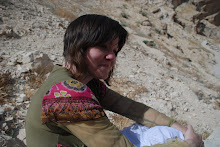| The revolution in heaven will not be televised |
PENNIE QUINTON:…And I was hurt and scared and shocked when they sent a limousine from heaven to take her to God if there is one...1
Now that limousine has taken Gil Scott-Heron to heaven; and he will see to it that God, if there is one, has a lot of explaining to do. The revolution in heaven will not be televised, but poets undermine the power of empires and their words live on. I first heard ‘The revolution will not be televised’ on the grassroots independent media project www.indymedia.org when it was covering Prague ‘S26’ demonstration against the International Monetary Fund (IMF) on September 26, 2000. I was there for the demonstration – an overwhelming experience that changed my life and worldview.It sent shock-waves through governments and succeeded in focusing attention on issues such as the legitimacy of the IMF and the clash between World Trade Organization rules and UN environmental conventions. ‘The revolution will not be televised’ became the soundtrack for this unexpected metamorphosis. Despite first being released in 1970 (on Small talk at 125th and Lenox), in 2000 it resounded relevant and fresh amid the carnivalesque tactics of beautiful chaos of the pink- and-silver bloc that disrupted and halted the IMF conference. The Carnival Queen entered the lair of the IMF, through tear gas, police batons and street fighting, chasing the beast away from its prey (for the time being)2. There were cameras – our cameras – everywhere. This revolution was going to be televised, but with more than the one-sided, editorializing, clichéd mainstream media descriptions of ‘a hard core of demonstrators’. En route to the conference centre where the IMF were meeting, Prague’s high concrete Nusle Bridge was the scene of a long showdown between demonstrators and cops. The Italian Ya Basta group3 were at the front in home-made padding with plastic dustbin lid shields – a small army of Michelin people, taking the police blows and pepper spray. After many hours in solidarity linking arms and pushing forwards against the armoured personnel carriers of the Czech policie, we went for food. We emerged from a curry house an hour later onto Wenceslas Square to rejoin the crowds. Due to some planning error two unescorted buses carrying IMF delegates drove right into the middle of hundreds of milling protesters. At the sight of the crowds the delegates stared out at us frozen with terror, hanging tightly onto the yellow poles inside the bus, their complexions pale as the name-tags pinned to their neat dark suits. The crowd, also frozen in stunned silence, stared right back, unsure how to react. Here were the deciders of policies that impacted on so many lives worldwide, against which the protest had been struggling, vulnerable and exposed in our midst, staring fearfully at us staring confused and unsure back at them. Static-laden, the atmosphere was filled with potential confrontation. No-one knew what came next. A young woman darted out to the front of the bus, took out a spray can and sprayed a big smiley across the windscreen in shaving cream. There were cheers and laughter. The silence and tension was broken. A small regiment of riot police ran single-file into the crowd, briskly escorting the delegates off of the buses to their nearby hotel, refusing to acknowledge the surrounding crowds, then vanished as fast as they had come. Later, listening to this story reported on Indymedia radio; I was amazed and inspired by the track that followed: ‘The revolution will not be televised’. This song and the moment of confrontation between the IMF delegates and we, the people, are for me intertwined. The fear on the delegates’ faces and the fear that as a member of a mob I could be called to act violently against defenceless people acts as a reminder that we are all human and vulnerable and of how easy it is to abuse power at the moment we have power over another. The young woman with the can of shaving foam kept it real. Her gesture thawed the ice in which we were frozen at that tense moment. Over the next five years the anti-globalisation protests continued and the Indymedia phenomenon grew; expanding into radio, video and online projects across the world with the slogan ‘Don’t hate the media, be the media.’ From this dramatic introduction to protest and grass roots media I became involved in Indy media projects in: London, UK, France, Italy, Belgium, New York, Switzerland and Spain. That hearing of “the revolution will not be televised” on the streets of Prague completely changed the direction of my life and I played Gill Scott Heron regularly on the weekly radio slot I produced and hosted on Resonance FM for five years, Global Indy reports. Gil Scott-Heron’s words and music continued as an inspiration. And his poem ‘Whitey on the moon’ remains pertinent in the face of the government cuts and austerity measures while the banks are bailed out with business as usual:
Was all that money I made las’ year (for Whitey on the moon?) How come there ain’t no money here ? (Hmm! Whitey’s on the moon)... I think I’ll sen’ these doctor bills (to Whitey on the moon.)4
Global capitalism is failing the vast bulk of the world's population.
RIP Gil Scott-Heron: long live your words.
1‘Coming from a broken home’ Now and then: the poems of Gil Scott-Heron (2001) Edinburgh: Canongate, p 1 2Prague World Bank / IMF 2000 from A Year in the Streets http://www.youtube.com/watch?v=TFz4EHgt3Uk 3See interview at http://www.ainfos.ca/00/nov/ainfos00001.html 4‘Whitey on the moon’ Now and then: the poems of Gil Scott-Heron (2001) Edinburgh: Canongate, p 21 http://www.saatchi-gallery.co.uk/artandmusic/?cid=500&b_log=500 |
Monday 30 May 2011
The revolution in heaven will not be televised
Subscribe to:
Posts (Atom)

